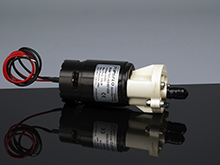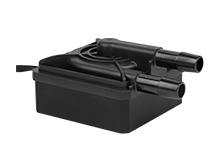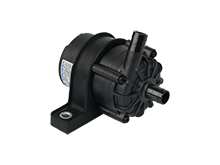Customized Speed Control Solutions for Miniature Diaphragm Pumps
2023-09-13
With the rapid development of information technology, the demand for customized speed control functions in Miniature Diaphragm Pumps continues to expand across various industries. This expansion is not only driven by the need for widespread adoption but also emphasizes highly precise flow and pressure control, energy efficiency improvements, and integration with intelligent systems.
Especially in specialized fields such as Chemistry and chemical engineering, medical beauty, inkjet printing, environmental monitoring, and agriculture and food, the demand for Miniature Diaphragm Pumps is gradually evolving towards intelligent and multifunctional directions. Enterprises are looking to significantly enhance equipment operational efficiency and automation levels through features like real-time remote monitoring, automatic control, and data analysis.
TOPSFLO's customized speed control feature for micro DC Miniature Diaphragm Pumps has been widely applied in the field of small and medium-power, high-speed speed control. Let's explore several methods typically used for speed control:
1.Voltage regulation for speed control
This speed control method is primarily suitable for brushed motors. It involves adjusting the voltage supply within an acceptable operating voltage range to change the interaction between the commutator and brushes on the motor rotor, thereby adjusting the motor's pole magnetic field strength to achieve the desired speed control. In this speed control mode, the Miniature Diaphragm Pumps flow and pressure performance will also decrease accordingly. It's worth noting that this method is typically associated with lower noise levels.

▲Adjustment method as shown in the pic
For 24V products, their power systems typically support operation within a voltage range of 18V to 28V. If the motor driver board adopts open-loop speed control, we can adjust the voltage within this range to achieve the desired speed control effect.
2.Pulse Width Modulation (PWM) Speed Control:
PWM speed control method is primarily suitable for brushless motors. This method involves applying a square wave signal with a specific duty cycle(PWM signal) to the motor power supply. This speed control process primarily depends on the duty cycle size of the PWM signal obtained from the feedback loop, thereby affecting the overall motor speed. When the duty cycle of the PWM signal increases, the motor's speed will correspondingly increase; conversely, reducing the duty cycle will cause the motor to decrease its speed.

When the motor driver board adopts open-loop speed control, we can directly use PWM signals to control the motor's speed. However, when closed-loop speed control is employed, sensor feedback is required to adjust the duty cycle of the PWM signal in real-time. As shown in the diagram, the Vctrl signal accepts a duty cycle signal with a PWM frequency range of 100-100KHz, an amplitude of 5V, and a duty cycle ranging from 0% to 100%. When a duty cycle signal of 0-20% is received, the pump will stop running. Receiving a duty cycle signal of 20-100% will result in linear speed adjustment, reaching maximum speed at 100%.
3.Analog Signal Speed Control:
Analog signal speed control typically uses 0~5V or 0~10V analog signals. In TOPSFLO's practical applications, a 0~5V speed control circuit is usually introduced to adjust the pump's speed by modifying the supply voltage to this circuit, thus achieving precise control of flow and pressure.

When the motor driver board employs closed-loop speed control, we can use the input Vctrl to achieve speed adjustment. Vctrl accepts a voltage signal ranging from 0 to 5V. When a 0 V voltage signal is received, the Miniature Diaphragm Pumps will stop running. When a 5V voltage signal is received, the pump will reach maximum speed. However, in practical applications, this continuous voltage signal is often mapped into different speed control modes to meet specific needs and application scenarios.
Technical Innovation and Industry Leadership:
With 18 years of experience in the development of micro pumps, TOPSFLO continues to invest in research and development for higher precision, greater energy efficiency, and intelligent micro diaphragm pumps. The company actively explores remote monitoring and control solutions based on various types of equipment to meet the diverse needs of different industries. Furthermore, we continuously improve material selection, sealing technology, and motor design to provide more durable and reliable products.
If you need more technical information about TOPSFLO's micro diaphragm pumps or have inquiries regarding customized speed control solutions, please don't hesitate to contact our sales engineering team. We are committed to providing you with high-quality solutions and services!










.jpg)




